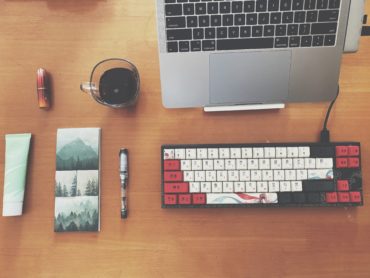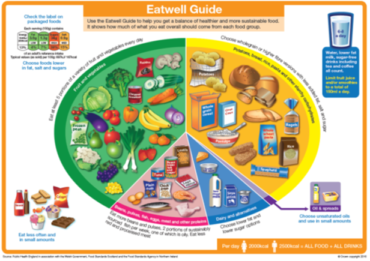Newsletter 4 (February 2021)
IEEE WIE Past and upcoming events
Arni Dhar

IEEE WIE meeting event screenshot
Past Event
New Committee 2021
Recently we just held an election of IEEE WIE UniMelb committee on 17th December 2020. Our new committee members are:
Chair: Ishita Akhter
Vice-Chair: Simona Karevska
Secretary: Arni Dhar
Treasurer: Abigail Yuan
Webmaster: Elaheh Alipourchavary
Activity Organiser: Alice F. Branco
Upcoming Event
With the new year’s launch and the pandemic’s conclusion, IEEE WIE Unimelb 2021 will be delighted to welcome our new students.
We are planning an intro event at the university over the upcoming O-weeks. The event will be more about getting to know each other and more about IEEE WIE Unimelb. It will be conducted via zoom.
To connect with people, we would be launching a competition where we would like our participants to share an inspirational post about women in engineering or a post reflecting your skill and development or any achievement you have experienced, inspiring others. As we all know, there are far fewer women in our engineering profession. Our goal is to encourage women worldwide to take a step forward and help our engineers move further. To extend our network, participants will post “#IEEEWIEUniMelb” on all their social platforms. In addition to making the competition exciting, we will give our top three performers a prize with a huge amount of likes and shares.
A volunteer experience with IEEE
Simona Karevska
 IEEEXtreme Programming competition screenshot
IEEEXtreme Programming competition screenshot
In October 2020 IEEE held their annual IEEEXtreme Programming Competition where teams from all over the world compete for 24 hours to solve a set of programming problems in their chosen coding language. To prepare for the event IEEE UniMelb Student Branch, the Women in Engineering University of Melbourne Affinity Group, the Computer Society Chapter and the Computational Intelligence Society of the IEEE Victoria Section held several workshops prepared us for this event. These workshops were a wonderful opportunity to meet other like-minded students, make friends and ultimately prepare us for the competition. We learned about Python operations, data structures, conditional statements, loops, and practised solving programming problems in the workshops we learned.
My three met several times to get to know each other, practise Python and plan strategies for the competition day, which was 24 hours long. We all thought it was a great opportunity to learn and develop our skills with Python. The hackathon day arrived, and we each had a mug of coffee beside us, ready to go. The problems were challenging, but we worked together to understand and come up with solutions. As it was virtual this year, we used video chats, screen sharing and screen annotations to communicate, build an understanding of the problems and help each other to code. I want to give my teammates Sunny and Danial a special thanks for making my first hackathon an exciting experience. It was an intense race to the finish line to submit our final code and fantastic fun throughout. I highly recommend the IEEEXtreme Programming Competition for anyone who wants to get involved, increase their coding skills, make new friendships and feel the thrill of a successfully running algorithm.
What Does WFH Mean To Us?
Meng Abigail Yuan
Once considered the space after work, home is now given a new functionality: workspace. Under the attack of Covid-19, working from home became a compromised solution to many people. However, not everyone has a perfect home office. Numerous issues arise as we switch to the working mode at home.
No separate workspace at home. Although we may have a desk or a table to place our laptops, we cannot deny that home is not designed for working. People are meant to be relaxed at home, but working requires us to be sharp and smart. It could be not easy to switch between these two modes when we sit in a cosy chair. A separate workspace is a luxury for most people. As various research suggests, people have more work/family conflict when more than one person works from home.

Lack of External Screen and Keyboard. Working on a laptop for hours can be extremely harmful to our wrists and neck. If your job requires spending a long time on computers, then a second screen is necessary. For some faculties at the University of Melbourne, there is support on providing monitors to researchers working at home but do not have a desktop. However, people may not know about this support.

Finally, kids kids kids. Gender-normative roles of mothers bring more challenges to females in engineering. Although we admit that men are doing their part of the duty for family, it seems crucial to stop a child from looking for her mommy when she knows mommy is at home. We have to accept the fact that we need to be not only a mother but also an engineer even at home. At the pre-WFH era, we can separate these two roles by locations; we can be a good mommy after work and a good engineer.

Change is inevitable. It is hard to say whether the changes brought by working from home is positive or negative. What we do know is that the boundary between workspace and living space is blurred. Maybe it is time to think about what we expect from home and work. When everything goes back to normal, can we make our home back home again?
Food habits for better mental health
Ishita Akhter
Good food habit is an important aspect of learning, especially for children and young adults. Recent research studies have identified a relationship between unhealthy dietary habits and mental health issues.
Eating habit and mental health issues
Poor eating habits can lead to critical mental health issues, especially for learners. For instance-
- Expressing behaviour such as hyperactivity, aggression etc.
- Lack of focus and fatigue, which affects learning
- Poor immune system affecting mental health
- Earlier delayed brain development affecting learning in later life
- iron deficiency affecting effective cognitive function, associated with learning and memory
- Other nutrient deficiencies, prompting to mental health conditions such as depression and anxiety
New research from the University of Newcastle presented at the Dietitians Association of Australia 36th National Conference discovered a significant relationship between Australian university students’ mental health and common food habits. Lower fruit and vegetable intakes, lower breakfast consumption frequency, and higher consumption of soft drinks and takeaway foods prompted high or very high risk of psychological health issues and distress and low resilience among the study’s sample research population. Hence for better mental health progression, it is highly important that young adults, more specifically, university students should revert to a healthy dietary habit and food intake approaches. A good example is The Eatwell Guide, proposed by the National Health Service (NHS), which is the umbrella term for the publicly-funded healthcare systems of the United Kingdom (UK).
and higher consumption of soft drinks and takeaway foods prompted high or very high risk of psychological health issues and distress and low resilience among the study’s sample research population. Hence for better mental health progression, it is highly important that young adults, more specifically, university students should revert to a healthy dietary habit and food intake approaches. A good example is The Eatwell Guide, proposed by the National Health Service (NHS), which is the umbrella term for the publicly-funded healthcare systems of the United Kingdom (UK).
The Eatwell guide
The Eatwell guide proposes the following aspects-
- Eat at least five portions of a variety of fruit and vegetables a day, from fresh, frozen, tinned, dried or juiced sources, as they are a good source of vitamins, minerals and fibre.
- Meals based on potatoes, bread, rice, pasta or other starchy carbohydrates, should be for just one-third of your daily food intake, as they are a good source of energy and the main source of a range of nutrients diet.
- Intake some dairy (milk, cheese, yoghurt and fromage frais) or dairy alternatives (such as soya drinks and yoghurts), which are important sources of protein, calcium and some vitamins.
- Eat some beans, pulses, fish, eggs, meat and other protein which are good sources of protein, vitamins and minerals, with at least two portions of fish every week, 1 of which should be oily.
- Cook food with unsaturated oils and spreads, using small amounts to provide high energy and affect health if not taken in moderate amounts.
- Avoid foods high in fat, salt, and sugar as much as possible as they can eventually have adverse effects on physical and then mental health.
- Drink 6-8 glasses of water every day but consume smoothies, juices etc. in moderation as well.
Sources:
-https://www.sanitarium.com.au/health-nutrition/mind/how-diet-impacts-university-students
-https://beyou.edu.au/fact-sheets/wellbeing/nutrition-and-mental-health#:~:text=Food%20insecurity%20can%20result%20in,depression%20and%20delayed%20brain%20development
-https://www.nhs.uk/live-well/eat-well/the-eatwell-guide/
An engineering joke
Alice Branco


